Are you prepared to delve into NFT business models and become part of the NFT revolution? NFTs have surged in popularity, offering businesses a lucrative avenue to monetize their digital assets, they reshape industries, and the NFT realms are constantly evolving. Whether it’s real estate in the virtual worlds, collectibles from the Bored Ape Yacht Club collection, or even loans managed by smart contracts, NFTs have unleashed a realm of opportunities.
However, navigating through the myriad of NFT business models can be daunting. To help you get started, we’ve compiled a list of the top 10 NFT business models you should familiarize yourself with in 2024.
Whether you’re an artist, investor, or simply intrigued by this dynamic new technology and the competitive advantages it offers, you’ll want to seize these opportunities. From several NFT marketplaces to lending platforms, these business models are poised to revolutionize the NFT landscape in the upcoming year. Get prepared to explore and uncover the cutting-edge advancements in NFT technology!
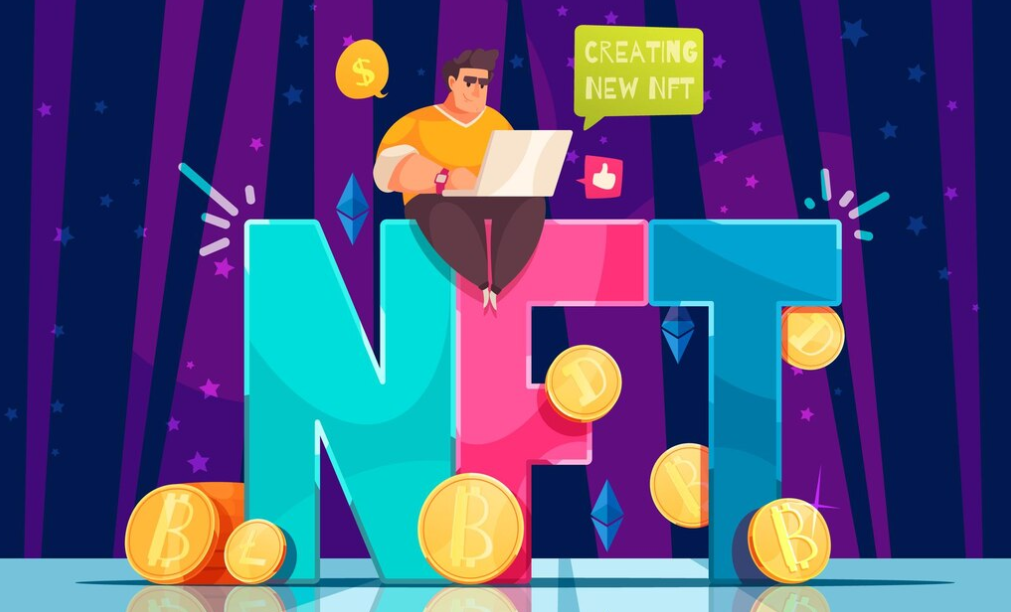
Source: Freepik
NFTs, or Non-Fungible Tokens, constitute a distinct category of digital assets representing ownership or authentication of singular items or content pieces such as artworks, music tracks, videos, virtual properties, and beyond.
Each NFT possesses unique attributes and cannot be duplicated, exchanged, or substituted, with their purchase history tracked on a blockchain which helps to reduce or eliminate security concerns.
Leveraging blockchain technology, NFTs operate within a decentralized digital ledger system that ensures the verification of authenticity and ownership. Subsequently, these NFTs are immutably recorded on the blockchain, establishing a lasting and unalterable documentation of their existence and ownership. This characteristic renders NFTs a secure and tamper-resistant method for owning and exchanging digital assets.
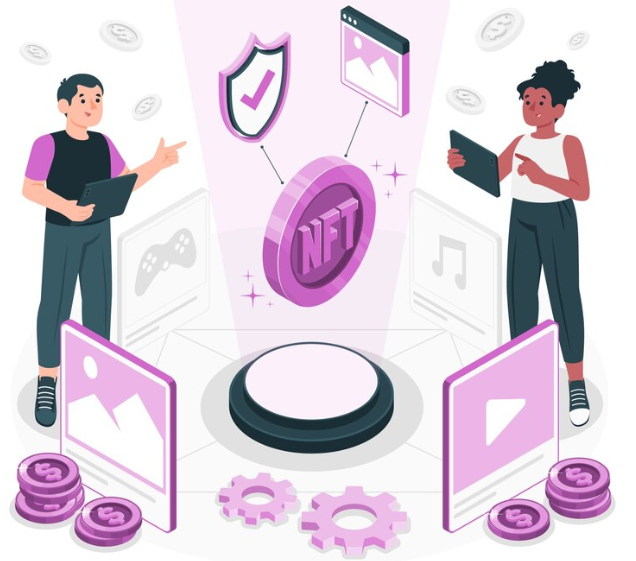
Source: Freepik
Why should you consider integrating NFTs into your digital strategy? Here are a few compelling reasons.
Blockchain technology simplifies the verification of ownership and authenticity of digital assets. This is particularly crucial for artists, musicians, and creators seeking to safeguard their intellectual property. NFTs establish a permanent and transparent ownership record on the blockchain, facilitating easier identification of ownership and enforcement of copyright laws for NFT-minted virtual items.
NFTs offer fresh revenue avenues for brands and content creators. Their uniqueness and inability to be replicated often result in high prices in auctions and marketplace listings, potentially leading to significant earnings and enhancing their competitive advantage. Moreover, NFTs can be resold multiple times, with original creators earning royalties on secondary sales. This process of selling creators NFTs ensures the creators with continued revenue from their work.
NFTs can serve as a means to engage with fans and cultivate a community around digital collectibles. It enables users to demonstrate support for creators by purchasing NFTs, fostering a sense of ownership, and forging personal connections. Additionally, NFTs enable the creation of token-gated experiences, such as backstage passes and exclusive access to new releases, enhancing engagement.
Due to their uniqueness and scarcity, NFTs have the potential to appreciate in value over time, transforming certain projects into investment opportunities. Similar to traditional investments, NFTs can be traded on various platforms and marketplaces, attracting investors seeking diversification.

Source: Freepik
Businesses can leverage NFTs in various ways, including capitalizing on unique digital assets, generating fresh revenue streams, and fostering novel customer interactions.
For instance, within the gaming industry, enterprises like Axie Infinity and The Sandbox have introduced NFTs as in-game commodities, enabling players to possess and exchange exclusive virtual items. This not only diversifies revenue sources for game developers but also instills a sense of ownership and investment among players.
In the realm of art, artists and galleries can vend NFTs of digital artworks, offering a novel avenue for artists to monetize their creations and for collectors to acquire unparalleled pieces.
Within the music industry, musicians such as Kings of Leon and Grimes have marketed NFTs encompassing their music, merchandise, and concert experiences, furnishing them with an alternative monetization channel while granting fans ownership of their cherished artist’s legacy.
In the real estate sector, platforms like OpenSea have instituted an NFT marketplace to facilitate the buying and selling of virtual or real-world properties through a streamlined, paperless process on a global scale.
As the NFT market burgeons and evolves, numerous NFT business models await exploration by entrepreneurs and creators embarking on their ventures. Detailed explanations of some of these models are elucidated in the subsequent section.
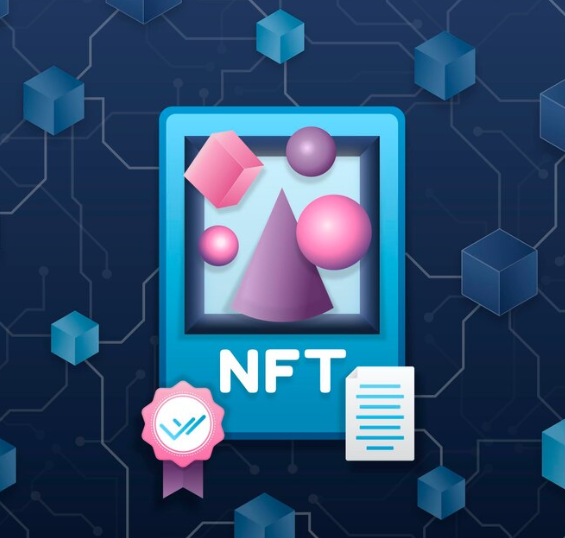
Source: Freepik
The NFT marketplace business model revolves around the sale of exclusive digital collectible items authenticated and traced via blockchain technology.
These collectibles encompass a wide array of items, ranging from virtual trading cards and in-game assets to digital artworks and virtual properties. Leveraging NFTs, this model establishes scarcity and exclusivity for digital goods, thereby enhancing their value.
To embark on an NFT marketplace business venture, begin by pinpointing a niche market segment. Utilize blockchain platforms like Ethereum, Polygon, or Avalanche to establish your NFT collectibles marketplace.
Craft distinctive and limited-edition digital collectibles and showcase them on your NFT platform, which should encompass essential features such as listing, minting, and transaction fee functionalities.
Regarded as one of the most promising concepts of 2024, embarking on an NFT marketplace venture entails navigating through competitive landscapes populated by formidable rivals like Opensea, SuperRare, Rarible, and Axie Infinity, among others.
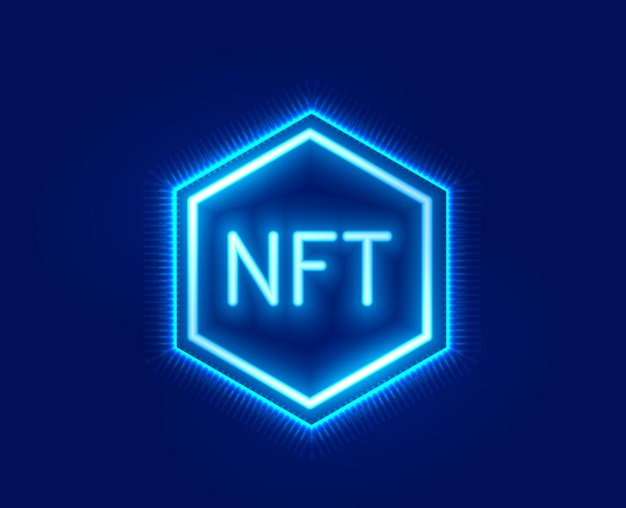
Source: Freepik
The NFT gaming business models entail harnessing NFTs to forge fresh avenues for monetization within the digital landscape and expand business horizons. NFTs empower players to procure and possess exclusive in-game assets like weaponry, armor, and vehicles. These assets not only serve utility within the game environment but also hold tradable or saleable value on the open market.
The integration of non-fungible tokens (NFTs) into the gaming industry has unlocked novel avenues for revenue generation. Esteemed companies like Enjin, Draper Labs, and Gala Games boast robust followings and a track record of crafting inventive and captivating NFT-infused gaming experiences.
For those aspiring to venture into the NFT gaming realm, drawing inspiration from these industry frontrunners proves beneficial. An essential aspect to consider involves diversifying offerings by developing games across diverse genres and experimenting with various earning mechanisms such as Move-to-earn (M2E), Play-to-earn (P2E), and NFT rentals.
Furthermore, it’s imperative to recognize that the development costs associated with establishing an NFT gaming marketplace may surpass initial estimates.
Nevertheless, the long-term prospects for expansion and revenue generation often validate such investments. Conducting comprehensive research, staying abreast of the latest advancements, and collaborating with seasoned professionals in the domain are pivotal steps toward ensuring a successful launch.

Source: Freepik
The Metaverse NFT business model revolves around leveraging non-fungible tokens (NFTs) to construct virtual realms that users can explore and engage with. This encompasses a spectrum of virtual entities ranging from digital properties to immersive experiences like concerts, events, and social interactions.
Integrating NFTs into these virtual environments, underpinned by blockchain networks, facilitates user connectivity and interaction, often augmented by technologies such as Augmented Reality (AR) and Virtual Reality (VR). Successful examples of Metaverse NFTs include platforms like The Sandbox and Decentraland, renowned for their profitability derived from virtual land sales. Notably, Decentraland empowers creators to fashion their own metaverse utilizing its native currency, MANA.
The Metaverse NFT business model presents myriad advantages, including the creation of novel revenue streams, heightened user engagement and retention, and a fresh avenue for users to own and trade digital assets, make in-game purchases, and generate revenue. Additionally, it fosters opportunities for collaboration among game developers, publishers, and NFT marketplaces.
Although the metaverse digital economy remains in its nascent stages, it represents an exhilarating frontier for virtual assets, poised to revolutionize digital interactions and engagement paradigms.
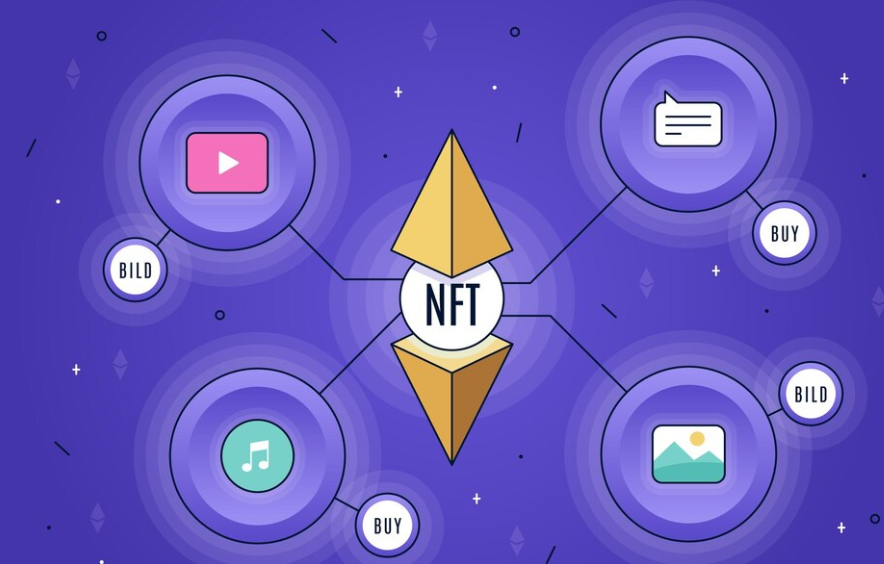
Source: Freepik
NFTs represent a prime opportunity to cultivate an engaged community. Such a community can serve as a hub for individuals to exchange insights, pose inquiries, and collaborate on diverse NFT-related endeavors. Initially, engaging an NFT development company to establish and oversee the NFT community platform is advisable.
Given the complexity of NFT businesses for many, a dedicated community can play a pivotal role in demystifying this realm by furnishing a forum for education, interaction, and networking. Drawing inspiration from popular platforms like Discord and Twitter can inform the structure and functionalities of the community platform.
Crafting a user-friendly platform will entice participation and foster the sharing of ideas, connections, and collaborations among members. Essential features such as premium memberships, branding and marketing tools, polling capabilities, and robust user networking functionalities are integral for member retention and community vibrancy.
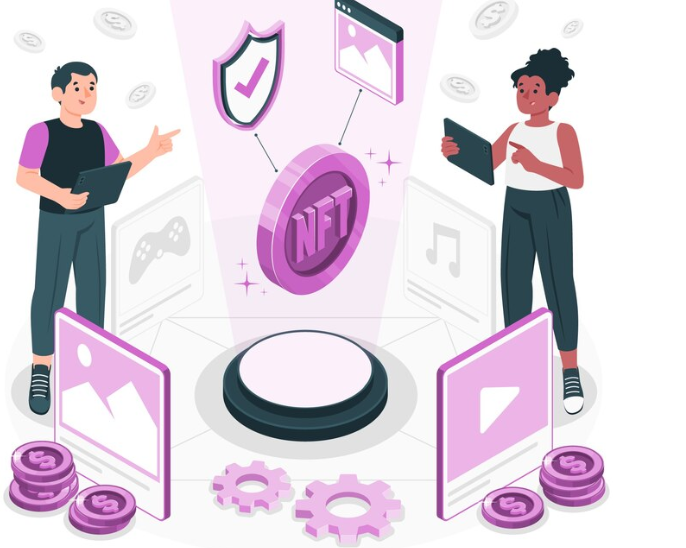
Source: Freepik
The NFT Minting Platform business model presents a distinctive avenue for creators and collectors to mint, exchange, and monetize their digital assets, ushering in a new era of accessibility in the NFT ecosystem.
Currently, numerous NFT marketplaces empower digital creators by furnishing them with minting tools to tokenize their prized artworks, enabling them to attribute appropriate value to their creations through trading. The prosperity and revenue prospects of this market are closely linked to the volume of minted NFTs.
To embark on establishing an NFT minting platform, it’s advisable to enlist adept NFT developers to construct the platform, incorporating features such as diverse minting categories and an intuitive user interface. With an NFT minting platform, creators gain the ability not only to trade their digital assets but also to buy and sell them. Moreover, businesses can remunerate artwork owners with a portion of future sales. This business model presents an enticing opportunity for those seeking entry into the NFT industry.

Source: Freepik
An NFT music business model represents an innovative approach for musicians and music rights holders to capitalize on their creations by crafting and vending distinct digital assets, including music videos, album artwork, and individual songs, as NFTs. These NFTs function akin to physical assets, enabling purchase, sale, and trade, but with the added advantages of digital ownership and verifiability.
Establishing an NFT music business necessitates possessing music and other digital assets for sale, a platform for vending, and a mechanism for minting and administering NFTs. Noteworthy platforms for NFT sales encompass YellowHeart, Audius, and OpenSea. The merits of this business model include the capacity to monetize unique digital assets and validate ownership and authenticity. Furthermore, NFT music unlocks novel opportunities for musicians, including tokenizing their creations and potentially earning royalties from resales, while affording fans the chance to possess a unique and verifiable slice of the artist’s oeuvre on the blockchain.

Source: Freepik
The NFT real estate business model represents a novel avenue for property owners, developers, and real estate agents to capitalize on their assets by generating and vending digital assets, such as virtual real estate, digital land, and other types of virtual real estate-themed digital collectibles, as NFTs.
Harnessing the capabilities of blockchain technology, NFTs streamline the process of buying and selling both virtual and physical properties globally, eliminating the need for intermediaries and paperwork. This enhances the efficiency of the real estate sector while unlocking fresh avenues for investment and profit generation. With the assistance of a reputable NFT development firm, businesses can leverage NFT smart contract solutions to facilitate secure and seamless transactions.
As the metaverse undergoes expansion, the NFT real estate business emerges as an increasingly appealing investment prospect, providing a distinctive and innovative means to engage in the real estate market.
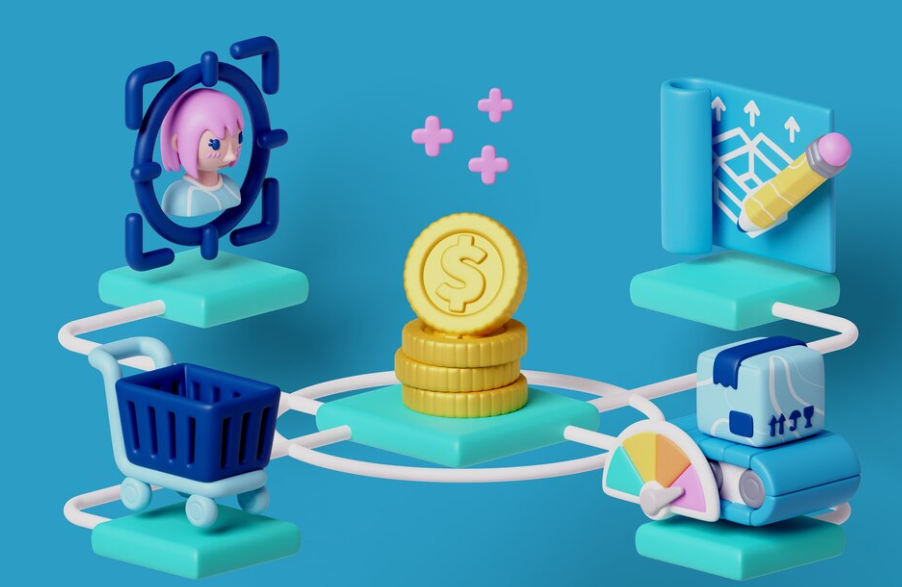
Source: Freepik
The NFT loan platform business models offer a pathway for borrowers and lenders to partake in peer-to-peer lending, leveraging their own NFTs as collateral. This type of electronic business enables borrowers to pledge their NFTs as collateral in exchange for loans, while lenders extend loans with reduced risk of default.
The convergence of NFTs and decentralized finance (DeFi) applications is garnering widespread traction among entrepreneurs globally. Through collaboration with esteemed DeFi development firms, businesses can forge innovative platforms, such as NFT loan platforms, amalgamating the strengths of both technologies.
To thrive in the NFT ecosystem, enterprises are enlisting blockchain developers to implement smart contracts and blockchain technology, enabling users to secure loans using their own NFT collectibles sans intermediaries.
The fusion of NFTs and DeFi ecosystems represents an exhilarating advancement gaining momentum in the transition toward decentralized finance. The NFT loan platform business models emerged as a frontrunner among NFT business models, fostering increased lending opportunities, enhanced security, and greater user flexibility.
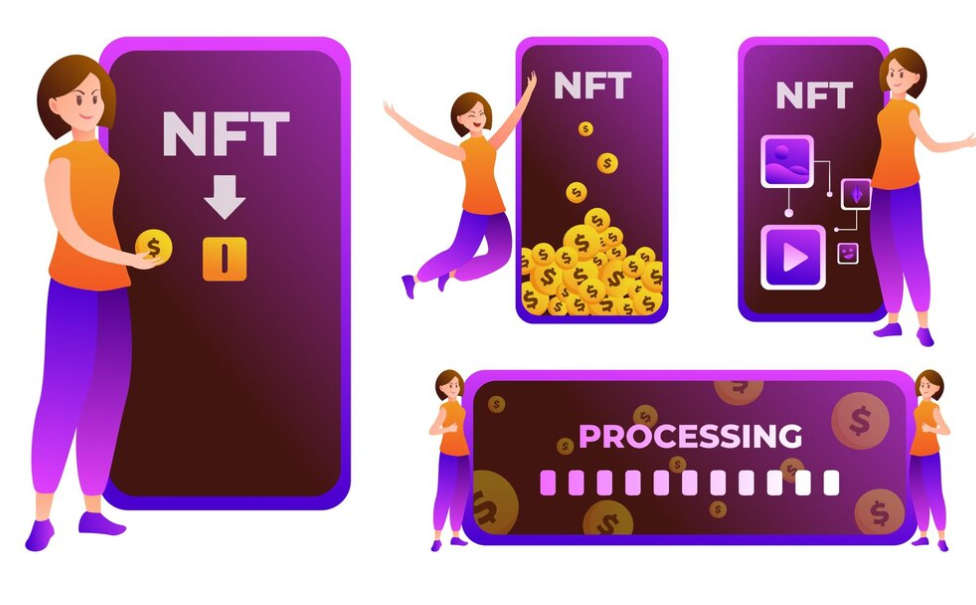
Source: Freepik
The NFT staking platform business models offer NFT holders a means to earn rewards by holding and “staking” their NFTs on a platform, akin to staking in the cryptocurrency realm, where holders receive rewards for supporting the network and NFT projects.
This model of digital economics provides several advantages, including the opportunity to earn rewards for supporting the network, validating ownership and authenticity, and potentially enhancing asset value over time.
NFT decentralized platforms for staking enable users to lock up their NFTs for a specified duration in exchange for rewards or cash, showcasing liquidity within the NFT space and offering users a pathway to generate revenue through staking. Operating on a proof-of-stake (PoS) model, these platforms mitigate energy costs compared to the energy-intensive proof-of-work (PoW) model.
As the popularity of NFTs surges and more people embrace NFTs, enthusiasts are increasingly turning to blockchain development services to establish NFT platforms for staking. These platforms are already being integrated into various play-to-earn blockchain games such as The Sandbox, Axie Infinity, and Splinterlands.
For businesses venturing into NFT staking platforms, incorporating features like utility tokens, robust annual NFT staking yields, an integrated lending mechanism, and more can enhance platform functionality and user engagement along with providing a competitive advantage.
The NFT staking business presents a compelling investment opportunity in promising NFT projects with the potential to appreciate asset value over time.
An NFT launchpad serves as a platform facilitating the minting, sale, marketing, and launch of NFTs, catering to new entrepreneurs and each NFT creator seeking to raise funds by selling NFTs for their forthcoming NFT projects through Initial NFT Offerings (INOs). This business model is anticipated to be among the most promising in 2024 and further on, fueled by the escalating demand for NFTs.
Launching an NFT launchpad offers the advantage of tapping into a vast pool of a digital NFT creator world, those who are eager to venture into the NFT space, alongside garnering support from NFT enthusiasts. Several prominent NFT launchpads already exist in the market, including NFTpad, NFTb, and NFTLaunch. To ensure the success of your NFT launchpad, consider implementing fundraising mechanisms such as Initial Exchange Offerings (IEO), Initial Coin Offerings (ICO), and Initial NFT Offerings.
The NFT market is experiencing substantial growth and ongoing evolution, and the NFT market dynamics are very promising. For entrepreneurs and creators, a plethora of NFT business models are available to embark upon their NFT ventures. Whether delving into NFT marketplaces, NFT gaming, virtual reality, or real estate, the array of possibilities is boundless.
NFT, short for non-fungible tokens, refers to a distinct digital asset symbolizing ownership or verification of authenticity for a particular item or content piece in the digital realm. It can span NFT art, music, videos, virtual real estate, and beyond. Every NFT possesses singular attributes and cannot be duplicated, exchanged, or substituted.
NFTs operate through blockchain technology, a decentralized and digital ledger, to authenticate and establish ownership of the NFT. The NFT is recorded on the blockchain, establishing an immutable and permanent record of its existence and ownership.
NFTs hold value as they signify ownership or authenticate a distinct digital asset, be it artwork, music, or virtual items within games. They introduce a novel avenue for creators and businesses to monetize their digital holdings, while providing customers with ownership of genuinely unique assets.
NFTs provide businesses with a fresh opportunity to monetize their digital assets and forge additional revenue streams, simultaneously granting customers a feeling of ownership and investment in the product or service. Moreover, NFTs boast seamless transferability and can be stored in digital wallets, offering enhanced convenience compared to physical assets.
NFTs are available for purchase or sale across a range of NFT marketplaces like OpenSea, Rarible, SuperRare, and others. Additionally, decentralized exchanges (DEXs) such as Uniswap and Sushiswap facilitate buying and selling of NFTs.